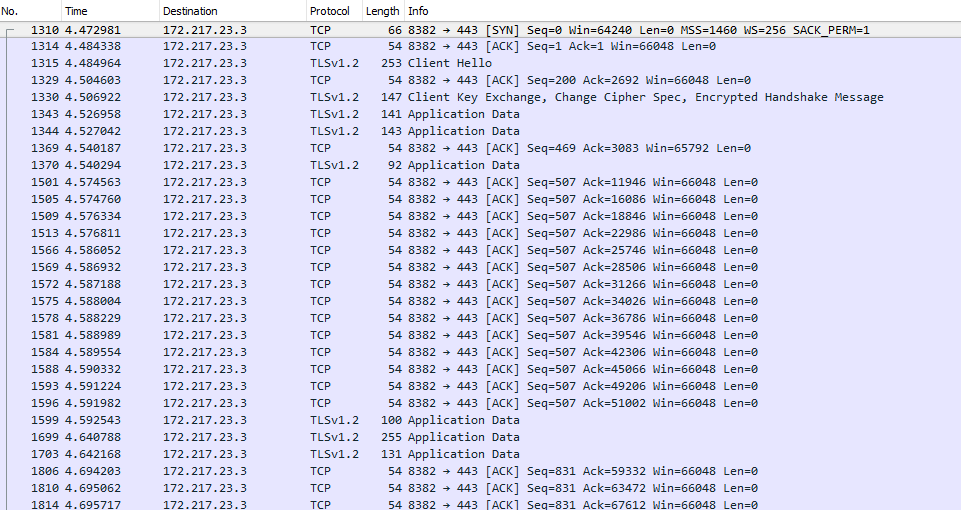Summary
The Http/2 protocol provides the ability to multiplex multiple requests over a single connection. This allows for more efficient use of connections - see https://http2.github.io/faq/#why-is-http2-multiplexed
I would expect to be able to use the .Net Core HttpClient to achieve this. My test (based on the below) however indicate that there is a 1:1 ratio of request to TCP connections are made.
Is multiplexing supported under .Net Core HttpClient? And if so, how is it achieved?
Work so far
I have a sample app (repo can be found here, with the following code;
using (var httpClient = new HttpClient())
{
var request1 = new HttpRequestMessage(HttpMethod.Get, "https://www.google.com");
request1.Version = new Version(2, 0);
var request2 = new HttpRequestMessage(HttpMethod.Get, "https://www.google.com");
request2.Version = new Version(2, 0);
var task1 = httpClient.SendAsync(request1);
var task2 = httpClient.SendAsync(request2);
Task.WaitAll(task1, task2);
var response1 = task1.Result;
var response2 = task2.Result;
Console.WriteLine($"Response 1 - Http Version: {response1.Version}, Http Status Code: {response1.StatusCode}");
Console.WriteLine($"Response 2 - Http Version: {response2.Version}, Http Status Code: {response2.StatusCode}");
}
This code produces the following results (so I know Http/2 is being used);
Response 1 - Http Version: 2.0, Http Status Code: OK
Response 2 - Http Version: 2.0, Http Status Code: OK
I can see from Wireshark that 2 connections have been created - each having to go through TLS setup;
If HttpClient was multiplexing the requests, I would expect see a single connection (1 port, 1 handshake, etc).


